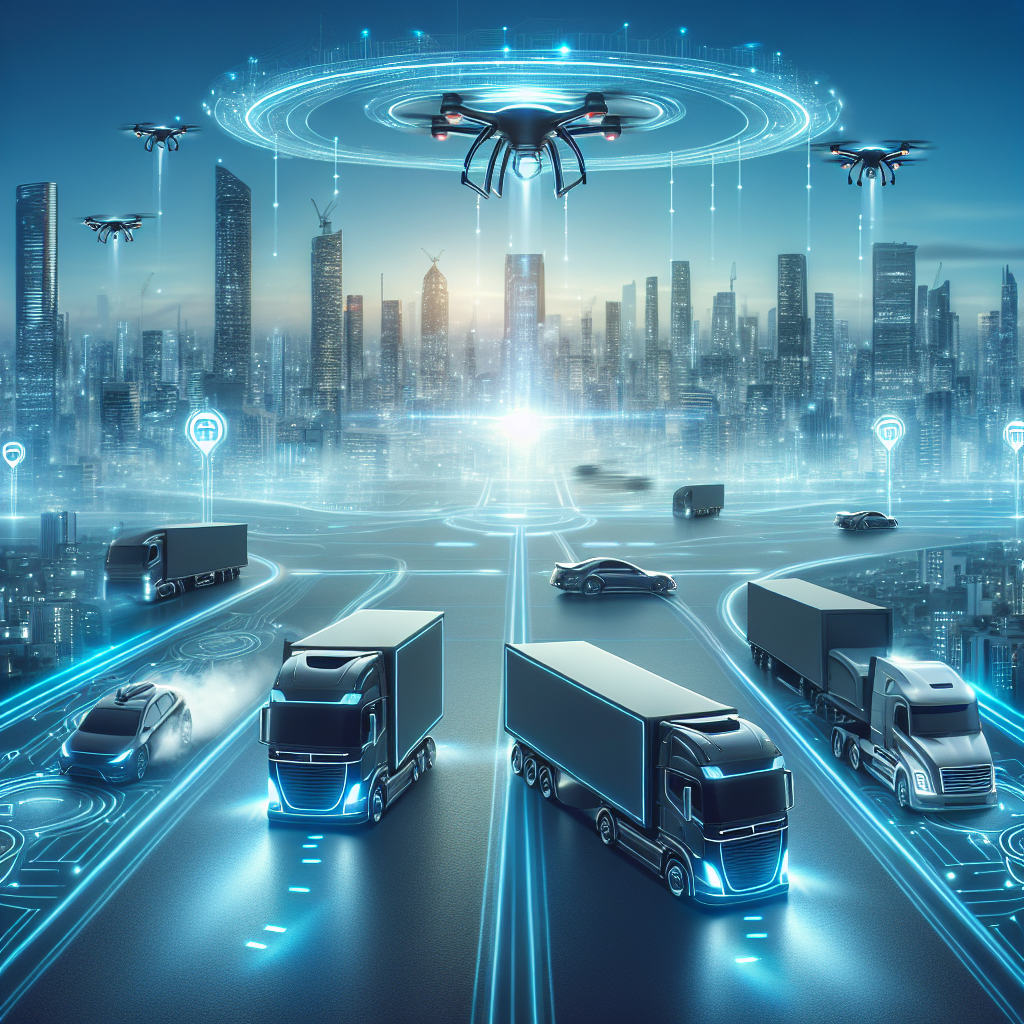The transportation and logistics industry is undergoing a significant transformation with the integration of artificial intelligence (AI) technology. AI is revolutionizing the way goods are transported, tracked, and delivered, leading to increased efficiency, reduced costs, and improved customer satisfaction. In this article, we will explore the future of transportation and logistics and how AI is reshaping the industry.
AI in Transportation and Logistics
Artificial intelligence has the potential to transform the transportation and logistics industry in several ways. One of the key areas where AI is making an impact is in route optimization. AI algorithms can analyze vast amounts of data, including traffic patterns, weather conditions, and delivery schedules, to determine the most efficient routes for transporting goods. This not only saves time and fuel costs but also reduces carbon emissions and improves overall sustainability.
AI is also being used to improve the tracking and monitoring of shipments. By integrating AI-powered sensors and devices into vehicles and cargo containers, companies can track the location, condition, and status of their shipments in real-time. This allows for better visibility and control over the supply chain, leading to faster and more accurate deliveries.
Another area where AI is revolutionizing transportation and logistics is in predictive maintenance. By analyzing data from sensors and equipment, AI algorithms can predict when a vehicle or piece of machinery is likely to fail, allowing companies to schedule maintenance proactively and avoid costly downtime. This not only saves money but also improves safety and reliability.
AI is also playing a significant role in the automation of transportation and logistics processes. Autonomous vehicles, drones, and robots are being used to transport goods and perform tasks such as loading and unloading cargo. These technologies not only improve efficiency and reduce labor costs but also enhance safety by reducing the risk of human error.
The Future of Transportation and Logistics
The future of transportation and logistics is likely to be shaped by the continued integration of AI technology. As AI algorithms become more sophisticated and powerful, companies will be able to optimize their supply chains, improve customer service, and reduce costs in ways that were previously thought impossible.
One of the key trends that we can expect to see in the future is the rise of autonomous vehicles. Self-driving trucks, drones, and delivery robots are already being tested and deployed in various parts of the world, and they are expected to become more mainstream in the coming years. These technologies have the potential to revolutionize the way goods are transported, making deliveries faster, safer, and more cost-effective.
Another trend that we can expect to see in the future is the increased use of AI-powered predictive analytics. By analyzing data from sensors, devices, and other sources, companies can gain valuable insights into their supply chains and make more informed decisions about how to optimize them. This can lead to better inventory management, reduced lead times, and improved customer satisfaction.
In addition to these trends, we can also expect to see the continued development of AI-powered robotics and automation technologies. These technologies have the potential to transform the way goods are handled, stored, and transported, leading to greater efficiency and productivity in the transportation and logistics industry.
FAQs
Q: How is AI being used in transportation and logistics?
A: AI is being used in transportation and logistics in several ways, including route optimization, tracking and monitoring of shipments, predictive maintenance, and automation of processes.
Q: What are the benefits of using AI in transportation and logistics?
A: The benefits of using AI in transportation and logistics include increased efficiency, reduced costs, improved customer satisfaction, and enhanced safety and reliability.
Q: What are some of the challenges of integrating AI into the transportation and logistics industry?
A: Some of the challenges of integrating AI into the transportation and logistics industry include data privacy and security concerns, regulatory hurdles, and the need for skilled workers to operate and maintain AI-powered systems.
Q: What are some of the future trends in transportation and logistics that are being driven by AI technology?
A: Some of the future trends in transportation and logistics that are being driven by AI technology include the rise of autonomous vehicles, increased use of predictive analytics, and the continued development of robotics and automation technologies.
In conclusion, the future of transportation and logistics is bright, thanks to the integration of AI technology. Companies that embrace AI-powered solutions will be able to optimize their supply chains, improve customer service, and reduce costs in ways that were previously thought impossible. By staying ahead of the curve and leveraging the power of AI, businesses can position themselves for success in the rapidly evolving transportation and logistics industry.

